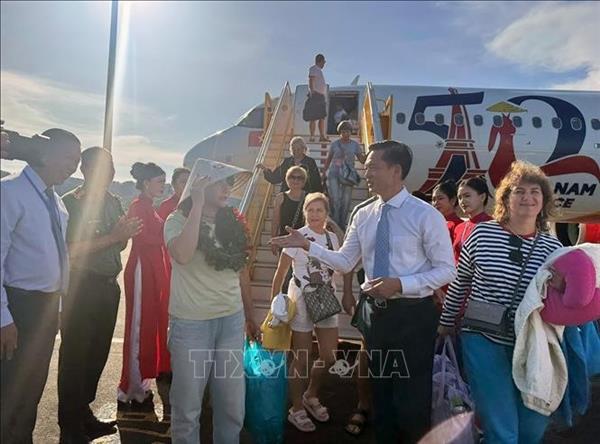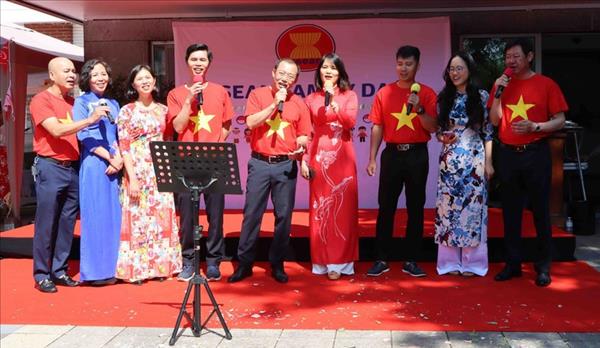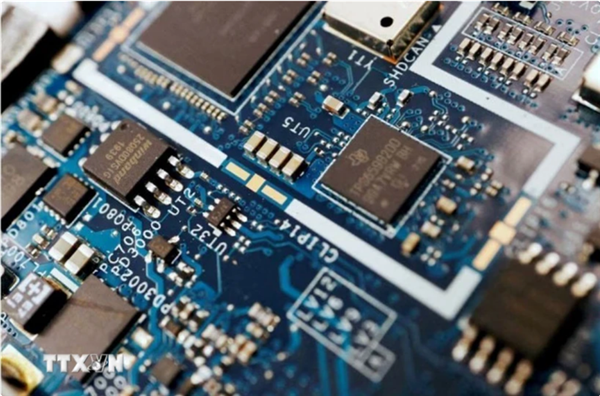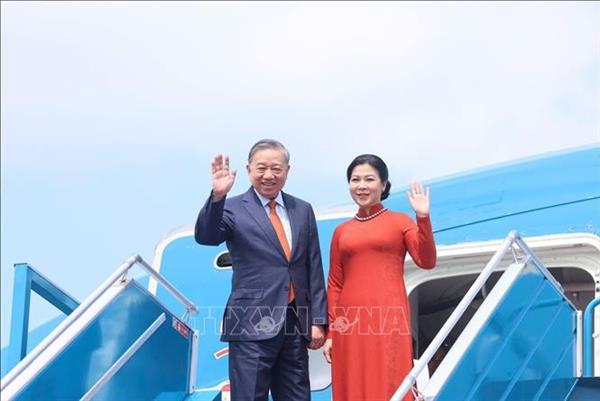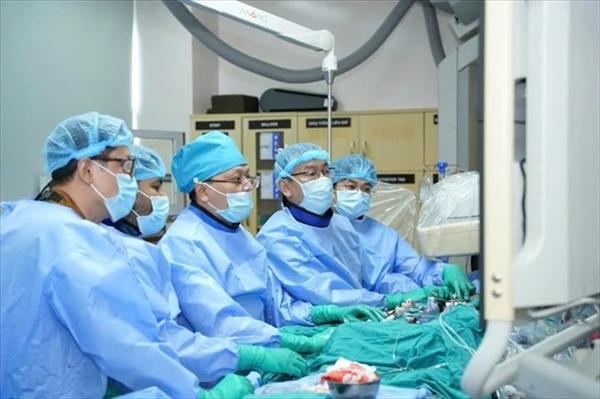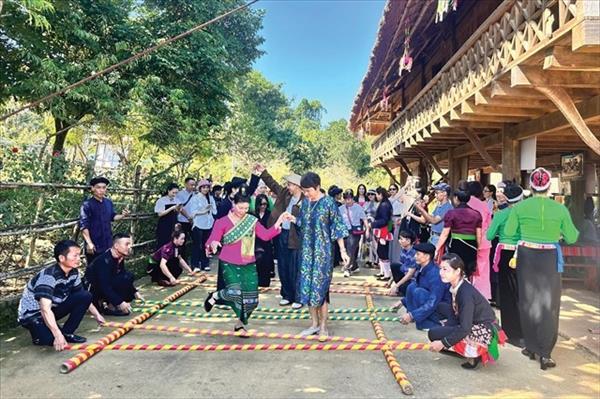Development actors and leaders from key government ministries in the Greater Mekong Subregion (GMS), the academe, business and civic society and development agencies joined more than 200 participants for the Mekong Forum 2018 held recently in Khon Kaen, Thailand.
The annual event hosted by Mekong Institute (MI) offers development stakeholders from the region a platform for sharing and discussion of the pressing issues concerning GMS development. This year’s theme, Turnarounds and Takeoffs: Speeding Up Competitiveness and Connectivity in the GMS, anchors the discussions on the role of innovation and regional cooperation in fast tracking the growth and progress of the GMS.
Explaining the rationale for this year’s event, MI Executive Director Dr. Watcharas Leelawath said, “Our theme for this year’s Mekong Forum is grounded on the premise that innovation, hand in hand with cooperation and collaboration, can drive competitiveness and foster increased connectivity among people and communities, and in turn, drive forward a faster growth momentum and development for us in the region.”
In his keynote address, Dr. Narongchai Akrasanee, former Minister of Energy and Minister of Commerce of Thailand, pointed to the potentials offered by disruptive technologies, Internet of Things and artificial intelligence (AI) economy in bringing about a second economic take-off for the countries in the GMS. These innovations, according to him, can greatly boost connectivity and competitiveness in the region by transforming much-needed structures and processes especially in terms of energy infrastructure and smart technology. “For all these areas of infrastructures, GMS countries should coordinate in their development and utilization,” he emphasized. “MI has been following the development of modern technology very closely. MI is ready to work with the GMS countries in the development of human resources to be capable of making the best use of AI to help the country develop in AI economy,” Dr. Narongchai further added.
The Forum’s sessions provided a dynamic and interactive platform for presenting current initiatives geared toward promoting innovation and fostering connectivity through cooperation among GMS countries. Session speakers also put forward ideas for more multi-sectoral collaborative efforts that can drive sub-regional development.
Mekong Forum 2018 was the sixth Mekong Forum since 2011, and organized in cooperation with the Thailand Convention and Exhibition Bureau (TCEB), and with the support of the Organisation for Economic Co-operation and Development (OECD) Development Centre, Open Development Initiative (ODI), and Thai Smile Airways and the Tourism Authority of Thailand (TAT).
Initiated by Mekong Institute, the Mekong Forum brings together opinion leaders to discuss the most pressing issues in the GMS and engages multiple stakeholders in collaborative efforts to shape the development agenda of the region. It also serves as a platform for interaction, dialogue and networking among scholars, business and government leaders and development experts and practitioners.
Previous forums have offered discussions on topics such as narrowing the development disparities between nations in the GMS and ASEAN; modernizing the GMS in light of the post-ASEAN Economic Integration; the role of development partners in the region; and the challenges and mechanisms to respond to the new geo-economics.
Mekong Institute is an intergovernmental organization owned and operated by the six member countries of the Greater Mekong Sub-region (GMS) that it serves, namely Cambodia, China (Yunnan province and Guangxi Zhuang autonomous region), Laos, Myanmar, Thailand and Vietnam. Its mission is to provide capacity development services and products that enhance regional development cooperation and integration. For more information, visit www.mekonginstitute.org.
By Ngan Ha
The annual event hosted by Mekong Institute (MI) offers development stakeholders from the region a platform for sharing and discussion of the pressing issues concerning GMS development. This year’s theme, Turnarounds and Takeoffs: Speeding Up Competitiveness and Connectivity in the GMS, anchors the discussions on the role of innovation and regional cooperation in fast tracking the growth and progress of the GMS.
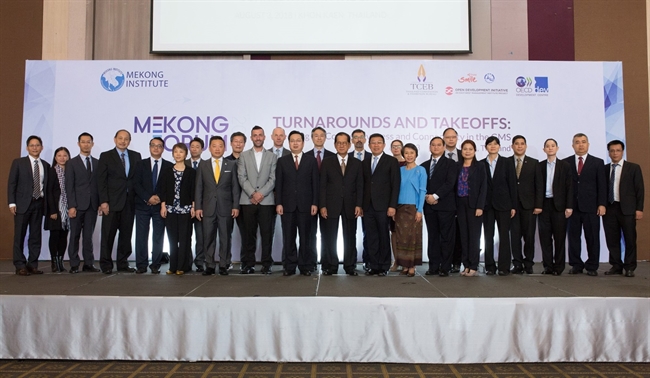 Mekong Forum 2018 speakers and MI leaders at the opening ceremony. |
Explaining the rationale for this year’s event, MI Executive Director Dr. Watcharas Leelawath said, “Our theme for this year’s Mekong Forum is grounded on the premise that innovation, hand in hand with cooperation and collaboration, can drive competitiveness and foster increased connectivity among people and communities, and in turn, drive forward a faster growth momentum and development for us in the region.”
In his keynote address, Dr. Narongchai Akrasanee, former Minister of Energy and Minister of Commerce of Thailand, pointed to the potentials offered by disruptive technologies, Internet of Things and artificial intelligence (AI) economy in bringing about a second economic take-off for the countries in the GMS. These innovations, according to him, can greatly boost connectivity and competitiveness in the region by transforming much-needed structures and processes especially in terms of energy infrastructure and smart technology. “For all these areas of infrastructures, GMS countries should coordinate in their development and utilization,” he emphasized. “MI has been following the development of modern technology very closely. MI is ready to work with the GMS countries in the development of human resources to be capable of making the best use of AI to help the country develop in AI economy,” Dr. Narongchai further added.
The Forum’s sessions provided a dynamic and interactive platform for presenting current initiatives geared toward promoting innovation and fostering connectivity through cooperation among GMS countries. Session speakers also put forward ideas for more multi-sectoral collaborative efforts that can drive sub-regional development.
Mekong Forum 2018 was the sixth Mekong Forum since 2011, and organized in cooperation with the Thailand Convention and Exhibition Bureau (TCEB), and with the support of the Organisation for Economic Co-operation and Development (OECD) Development Centre, Open Development Initiative (ODI), and Thai Smile Airways and the Tourism Authority of Thailand (TAT).
Initiated by Mekong Institute, the Mekong Forum brings together opinion leaders to discuss the most pressing issues in the GMS and engages multiple stakeholders in collaborative efforts to shape the development agenda of the region. It also serves as a platform for interaction, dialogue and networking among scholars, business and government leaders and development experts and practitioners.
Previous forums have offered discussions on topics such as narrowing the development disparities between nations in the GMS and ASEAN; modernizing the GMS in light of the post-ASEAN Economic Integration; the role of development partners in the region; and the challenges and mechanisms to respond to the new geo-economics.
Mekong Institute is an intergovernmental organization owned and operated by the six member countries of the Greater Mekong Sub-region (GMS) that it serves, namely Cambodia, China (Yunnan province and Guangxi Zhuang autonomous region), Laos, Myanmar, Thailand and Vietnam. Its mission is to provide capacity development services and products that enhance regional development cooperation and integration. For more information, visit www.mekonginstitute.org.
By Ngan Ha


